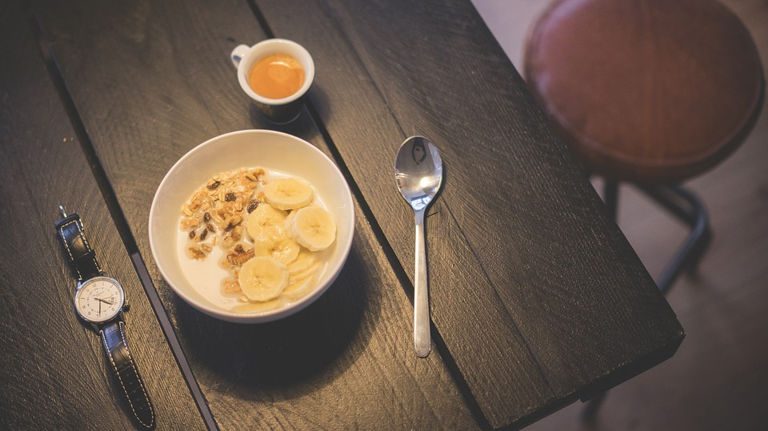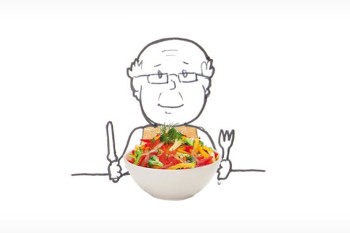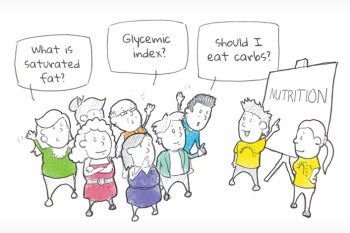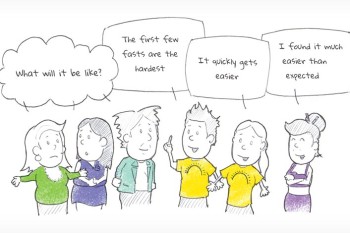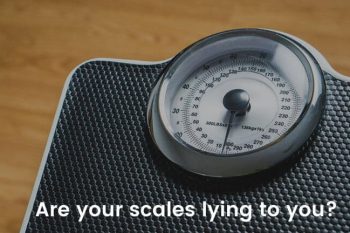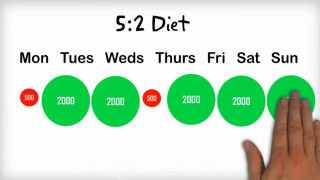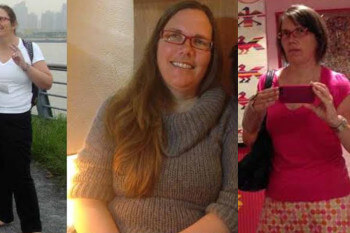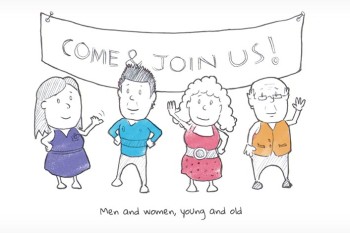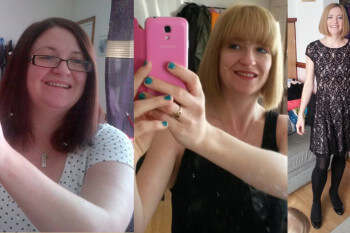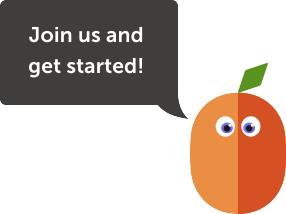We have used the experiences of our FastDay community members, together with scientific research studies, to create a guide for how you can get the most out of the intermittent fasting way of eating by knowing when and what to eat when you fast.
There are no rules, and flexibility is one of the best things about intermittent fasting. You can still eat the food you love, and won’t feel you are constantly ‘on a diet’. Treat this as a set of suggestions not rules – and do what works best for you.
- When should I eat on a fast day?
- What should I eat on a fast day?
- How should I eat on non-fast days?
When should I eat on a fast day?
For most people, fasting all day and then having a good evening meal is the best plan for a fast day. You will have a small calorie allowance on fast days of 500–600 calories. A single 500 calorie meal can be quite substantial, but if you try to spread the calories over breakfast, lunch and dinner, you will only be able to have mini-meals. Most people find that eating just a small amount only cures the hunger pangs for a short time and actually makes them hungrier for the rest of the day, so it is generally best to avoid snacking on fast days and save your calories until you can have a proper meal.
As well as being easier for most people, waiting to eat until the evening is also more effective for weight loss, as you will have fasted for longer. This has been shown by a survey conducted on the FastDay Forum to investigate the factors that influence weight loss on the 5:2 diet. The analysis of our survey questionnaire found that fasting for more than 20 hours on a fast day resulted in a greater weight loss than fasting for less than 16 hours. There are several potential scientific explanations for why this might be.
Learn more about the science of fasting
Some snacks allowed: you may find you hit a bit of a low point at around 4pm. A salty drink or a small snack may be the answer. If you have problems with not sleeping well on a fast day, saving some calories for a snack before bed may be the answer.
See our top tips for new fasters
You make the rules here: if fasting all day doesn’t suit you, don’t feel you need to follow this advice. You might find that you prefer to eat a small breakfast, skip lunch and then have dinner. Or perhaps you like to skip breakfast, have a small lunch and dinner. Or maybe a big lunch and an evening snack suits you best. With the intermittent fasting Way of Eating, whatever works best for YOU is always the right answer!
Learn more about flexible fasting
Timing your eating window: if you are following an ‘eating window’ intermittent fasting method, such as 16:8, you already know when you should eat: during your eating window. But, you do need to decide when that window should start and finish. Theoretically, if you are following the 16:8 plan you could open your eating window at 4pm and finish your last meal at midnight. However, it may be wise not to leave it so late to finish eating. The reason is that our bodies are designed to go into rest and repair mode at the end of the day: eating late in the evening interferes with the rhythms of our bodies’ hormones and might affect our health. It is not really known whether eating late slows weight loss or affects our health in other ways but until we know more, it is probably best to try to avoid eating late at night. This allows your body to digest your meal and start the process of preparing for the night-time repair phase. However, as always, if you prefer or need to eat later and it works for you, then you should do so.
Learn more about metabolism and digestion
Learn more about different ways of intermittent fasting
What should I eat on a fast day?
How can you make the most of your calorie allowance on a fast day?
1) Choose higher protein meals, which help you to feel full for longer. As protein is fairly high in calories you cannot have a huge amount for your 500 calories but make protein your main source of calories.
2) Fill up your plate with low calorie vegetables: they fill your stomach, taste good and do you good. Steam them, oven-roast with a teaspoon of oil, or stir-fry and add some spices or flavourings to make a really delicious filling meal. Or have them raw in a big salad.
3) Keep carbohydrates to a minimum: they are high in calories and make you feel hungry again quickly. Examples of carbohydrate-containing foods to avoid are: potatoes, sweet potato, pasrsnips, rice, pasta, bread, some fruits (bananas, grapes, melon, prunes, raisins, dates and other dried fruits), breakfast cereals, fruit juice, corn-on-the-cob/sweetcorn and anything containing sugar, honey or other syrups.
4) Don’t be afraid of fat: although fat is high in calories, it helps you to feel full. Include small amounts of fat in your fast day food.
Although the recommended calorie allowance of 500 calories for women; 600 calories for men is not so strict that it really matters if you go over or under the allowance by a little, you will need to weigh or measure at least the high-calorie ingredients in your recipes and work out the calorie content.
What about ready-made meals? A ready-made meal can be a great no-fuss solution. As with home-cooked meals, look for options that are low in carbohydrate and sugar and high in protein and vegetables.
FastDay makes fasting easier
At FastDay, we have made it easy to plan your fast day food with our great calorie-counted recipes suitable for a fast day in our FastDay Recipe collection (and some for non-fast days).
How should I eat on non-fast days?
Intermittent fasting is the best Way of Eating for food lovers! On non-fast days you are free to eat whatever you like. Though, of course, if you want to lose weight, perhaps not as much as you fancy. And, strange though it may seem, the fast days will probably reduce your appetite on non-fast days rather than increasing it.
-
You may find you are not particularly hungry on the day after a fast day. There’s no need to eat a lot if you don’t feel like it! It is fine to wait until you are hungry before eating on a non-fast day.
-
Your tastes may change so that you no longer feel cravings for sweet, sugary foods.
-
You will understand hunger better and find you snack less and can wait for meal times without worrying about when it will be time to eat.
These kinds of changes won’t happen immediately. Your hunger on non-fast days may vary greatly. You might find that you have non-fast days when you are really hungry and eat a lot. Many people experience this in the early days. Don’t worry if this happens, just concentrate on sticking to your planned fasts. After 6 weeks of fasting, if you are still having problems with overeating, and you are not losing any weight, you might want to consider whether to change your fasting method or to make other changes. Our pages on Troubleshooting may be helpful here, or visit our FastDay forum for some personal advice from the community.
You should aim to eat normally on non-fast days. The joy of intermittent fasting is that you can spend most of your time feeling free of anxiety about food, while controlling your weight and living in a healthy way. Some people restrict their calories on their non-fast days in an effort to speed up weight loss. While this may work in the short term, it is probably not such a good idea in the long term. If you do not have your days of normal eating you will likely feel deprived of your favourite foods and develop ‘diet fatigue’. If intermittent fasting is to become your Way of Eating for life, it’s important you do it in a sustainable way.

